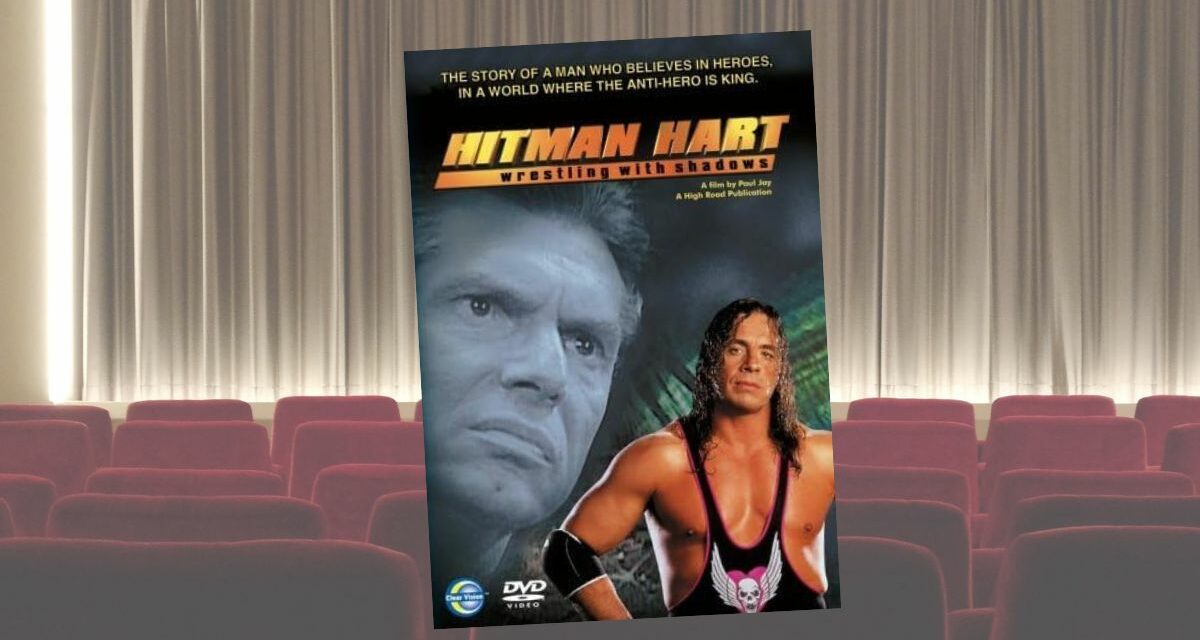“It’s too bad that a fourteen-year relationship was destroyed because one member of that relationship forgot that we’re in the sports entertainment business. Forgot where he came from. Bret Hart screwed Bret Hart. He can look in the mirror and know that.”
– Vince McMahon, owner and president of Titan Sports (the World Wrestling Federation).
“Vince McMahon has always had this mentality about treating wrestlers like circus animals. All these wrestlers who have broke their backs making this living for years end up with nothing when it’s over. And then they (the promoters) sort of take you out back and they put a slug in the back of your head and dump you. That’s the life of a professional wrestler.”
– Bret “The Hitman” Hart.
In any court case it’s the best evidence you can possibly submit. Video taped footage doesn’t lie. The controversy surrounding the ending of the 1997 WWF Survivor Series match between Canuck wrestling icon Bret Hart and his arch rival the flamboyant heartthrob Shawn Michaels has been debated to death in the court of public opinion.
Some say Vince McMahon was justified in taking matters into his own hands, prematurely ending the bout awarding the WWF World Title to challenger Shawn Michaels. It was Hart’s last match before leaving for the competition: Ted Turner’s World Championship Wrestling. If Hart won, there was a chance he could show up on a WCW broadcast with the WWF’s title belt.
The fed’s reputation was on the line. McMahon did what he had to do.
Others believe McMahon deliberately sabotaged Hart’s standing in the wrestling community because The Hitman publicly criticized the WWF’s new “mature theme” while serving out the last days of his contract.
Lacking any tangible proof supporting their version of the truth, it’s been McMahon’s word against Hart’s swaying the fans. Like a surprise witness on an episode of Perry Mason, Director Paul Jay’s documentary, Hitman Hart: Wrestling With Shadows, threatens to greatly tip the scales in favor of the Hitman.
The damning footage shot behind the scenes at Survivor Series won’t be easy for the WWF to dismiss. McMahon caught on tape authorizing the finish Hart wanted. Pat Patterson informing Hart’s family of the planned DQ, run-in ending. Shawn Michaels pleading his innocence to Hart back in the locker room. Hunter Hearst-Helmsley absorbing a verbal brow beating from Hart’s wife, Julie.
Rest assured, someone’s got some explaining to do.
The Survivor Series fiasco functioning as the obvious dramatic climax, Jay’s film tracks Bret Hart’s final year with the World Wrestling Federation from his character’s “anti-American” heel turn to that fateful night in Montreal. Jay distances himself as much as he can from his subject. For the most part, he is the silent observer. Hart and the camera do the talking.
Many of the questions revolving around Hart’s heel turn, his decision to leave the WWF and his opinion of wrestling fans in general are answered. His clarifications are what anyone following the story would expect. What makes for engaging viewing is the personal toll these issues took on Hart. How he agonized over his character’s change wondering if the damage could ever be undone. How being called a “sell out” for accepting WCW’s lighter work schedule so that he could spend more time with his family, wounded him deeply.
If caring so passionately about his life’s work means Hart will in turn be painted as a mark by his critics, one gets the impression that The Hitman is more than happy to accept the label.
The title of the movie figures into footage of Hart’s family – specifically his father, Canadian wrestling icon Stu Hart. In a revealing moment, The Hitman confesses he’s always felt like he’s living in his famous dad’s shadow and therefore had to prove himself worthy of proudly carrying on the family tradition.
In another candid revelation, Hart says he would’ve liked to have been a better husband and father. That traveling around the world as a WWF superstar placed an unfair burden on his wife. In contrast to his own admissions, the segments featuring Hart with his children and his wife are what’s best about Wrestling With Shadows.
Jay’s respectful approach doesn’t parallel the slick, federation-produced wrestling bio tapes which function as extensions of pro-wrestling’s grand hype machine. This is an impressive in-depth profile documenting every aspect of a professional wrestler’s life in and out of the ring.
Whether you are a Hitman fan or not really isn’t relevant. Jay puts a backstage pass in our hands giving fans a rare peak at one of wrestling’s greatest heroes as well as the clandestine workings of the biz.
As fans carelessly hurling abuse or thrilling at the death-defying feats, we often forget that these men and women aren’t the cartoonish characters they portray. They bruise. They bleed. Hateful words hurt them sometimes. They have friends, families and everyday troubles to contend with too.
Hitman Hart: Wrestling With Shadows is a gentle reminder that though wrestlers walk that fine line between fact and fantasy, they are REAL people like you or I.
WRESTLING WITH SHADOWS STORIES
- Greg Oliver review: New Hitman video on the mark
- Sep. 25, 1988: Hitman Hart director explains choices
- Nov. 17, 1988: Calgary screening Hart-warming experience
RELATED LINKS

